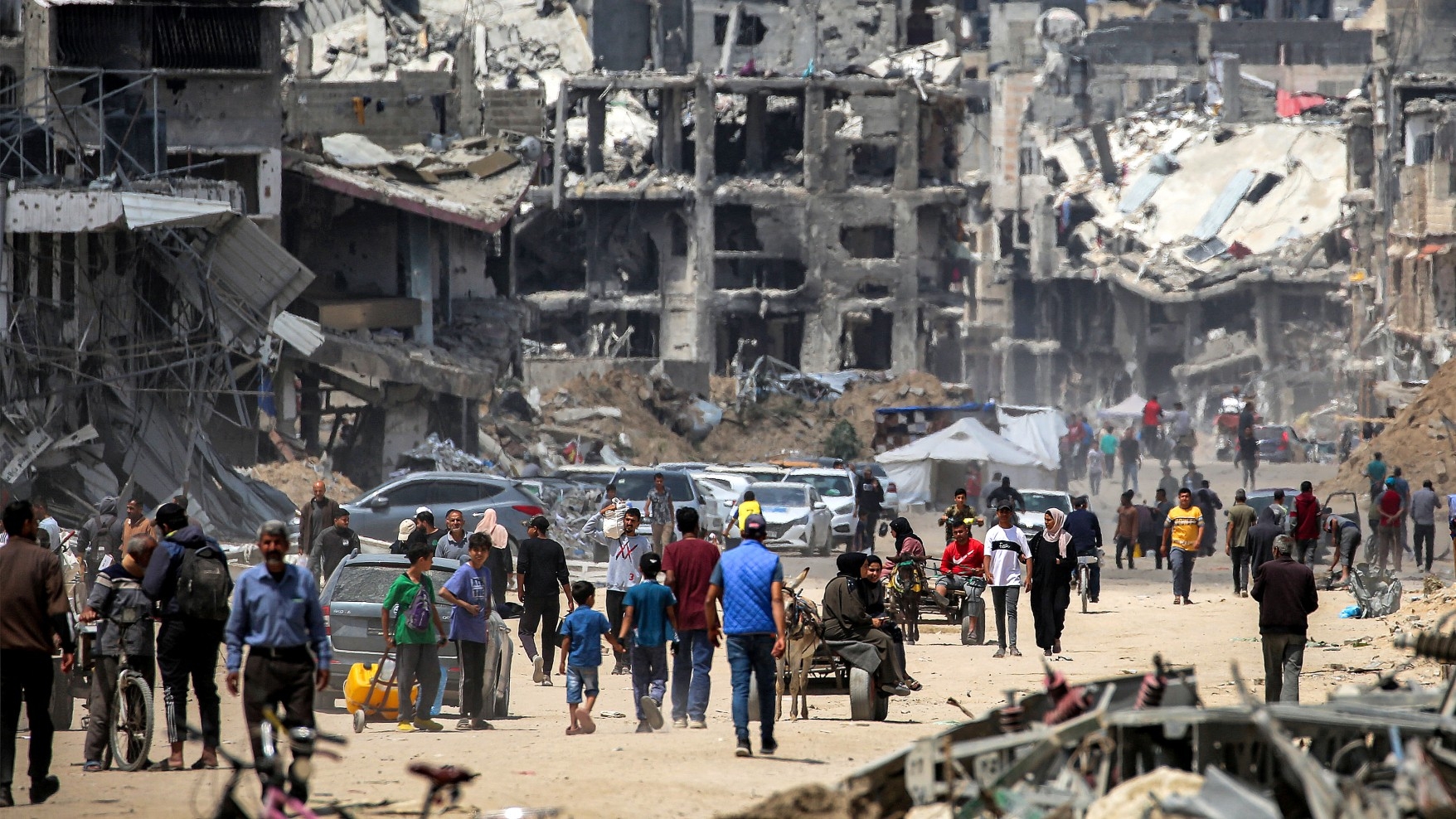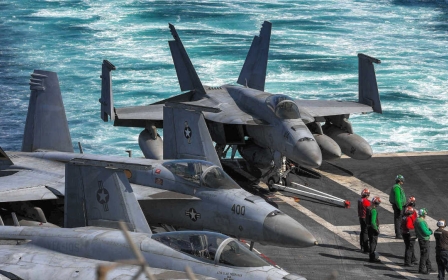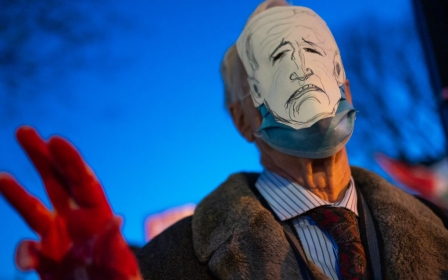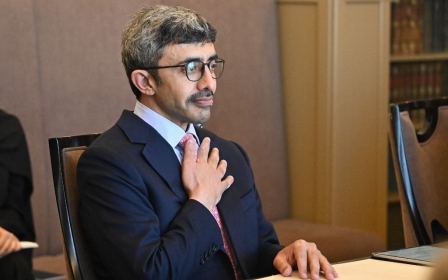Bahrain signals willingness to join Arab multinational force in Gaza, US official says

Bahrain has signalled its willingness to be a member of an Arab multinational force that would administer security in Gaza once Israel ends its war on the embattled enclave, a US official familiar with the Biden administration's plans for the region has told Middle East Eye.
US officials have made several overtures in recent weeks to see if Bahrain would be a member of the force that will fill the security vacuum in Gaza until a Palestinian governing authority can be formed, the US official said on condition of anonymity as he was not authorised to speak to the media.
Manama has said it wants to take a bigger role in post-war Gaza's governance, pointing to its position as the fourth country to normalise ties with Israel in 2020 as part of the Abraham Accords agreements, the official said.
Bahrain's willingness to entertain the idea suggests that Saudi Arabia is also open to an Arab peacekeeping force in Gaza, given Manama's political, military and financial reliance on its larger neighbour.
The Financial Times reported on Wednesday that the Biden administration had also approached Egypt, Morocco and the UAE to take part in the Gaza multinational force. The report added that Saudi Arabia had rejected taking part in such a deal.
New MEE newsletter: Jerusalem Dispatch
Sign up to get the latest insights and analysis on Israel-Palestine, alongside Turkey Unpacked and other MEE newsletters
A senior Western official familiar with the attempts to build the force told MEE that Manama could serve as "the tip of the spear" to provide momentum for a wider push for a multinational force.
"Bahrain is not the issue - Saudi Arabia and UAE are the clinchers," the official said.
Bahrain will host an Arab summit on Thursday where post-war Gaza plans are expected to be discussed.
For several weeks, Arab states have publicly sought to distance themselves from any post-war Gaza plan because of widespread outrage against Israel over its devastating assault on the enclave.
Since the events of 7 October, when a Hamas-led attack on southern Israel resulted in the deaths of 1,171 people and in more than 200 people being taken back to Gaza as captives, the enclave has been under total siege and deprived of basic necessities, while facing a devastating bombing campaign by Israel.
More than 35,000 Palestinians have been killed and around 1.7 million displaced, in what was described at the International Court of Justice in January as a plausible genocide.
Nearly 77,000 people have also been wounded, according to health officials. The figures exclude tens of thousands of dead who are believed to be buried in the bombed-out ruins of homes, shops, shelters and other buildings.
On Saturday, the UAE ruled out taking part in the administration of Gaza, saying it would not provide "cover" for Israel's actions.
UAE Foreign Minister Abdullah bin Zayed made the comments after Israeli Prime Minister Benjamin Netanyahu suggested the Gulf state would be involved in overseeing the running of the Gaza Strip after the end of Israel's assault.
But Western and US officials who spoke with MEE said that Arab rulers are concerned about the spiralling lawlessness in the strip.
In recent days, Hamas has been able to reconstitute itself in areas of the enclave and launch guerrilla style attacks against Israeli forces.
Wider deal involving normalisation
According to reports, the Biden administration has been trying to craft a post-war plan for Gaza as part of a wider deal to seal a normalisation agreement with Saudi Arabia.
Those efforts have been frustrated by Netanyahu's refusal to accept a Palestinian state and Israel's insistence that it will maintain overall security control of the besieged enclave.
Analysts say Saudi Arabia and other Arab Gulf states are reluctant to entangle themselves in Gaza without Israeli steps towards a two-state solution.
Like other Arab states approached by Washington, Bahrain would likely want to see it participate in the peacekeeping operation under a UN Security Council resolution.
"This would only work under a UN wrap," the western official said.
The day before Biden's wartime visit to Israel in October, the Washington Institute for Near East Policy published an analysis of a "Post-Hamas Gaza".
MEE reported that some US officials shared the paper with their Israeli counterparts as a roadmap to consider. The paper wasn't presented as an official request but as one of several options.
The paper recommended an interim administration governing Gaza, with civilian affairs controlled by local Palestinians and security managed by a peacekeeping force of neighbouring Arab states until the Palestinian Authority (PA) can take over. The international community would assist in reconstruction.
The confidence among US officials that Bahrain would be willing to participate in the force suggests that those talks have advanced, even as Arab rulers seek to publicly downplay any role in Gaza.
Bahrain was the fourth Arab country after the UAE normalised ties with Israel and was the first to publicly host an Israeli military officer.
A key US ally and home to the US Navy's Fifth Fleet, Bahrain is designated a non-Nato ally by Washington and considered one of the most committed to pushing back against Iranian influence in the region.
Middle East Eye delivers independent and unrivalled coverage and analysis of the Middle East, North Africa and beyond. To learn more about republishing this content and the associated fees, please fill out this form. More about MEE can be found here.






